Meet Jenny Fergus—a VSA volunteer who worked as a Nurse Practitioner Trainer in Vanuatu. Following COVID-19 and in a country that had been in lockdown for 2 years, there was often a shortage of medical practitioners, and as such, although Jenny was originally recruited to support capacity building, she sometimes found herself chipping in, such as seeing patients, and prescribing and dispensing medication. Despite the challenges, Jenny immersed herself in educating patients and families in the clinic setting, upskilling the staff, running a nurse-led clinic, raising diabetes awareness, and offering treatment plans. Here’s a peek into Jenny’s everyday life as a volunteer…
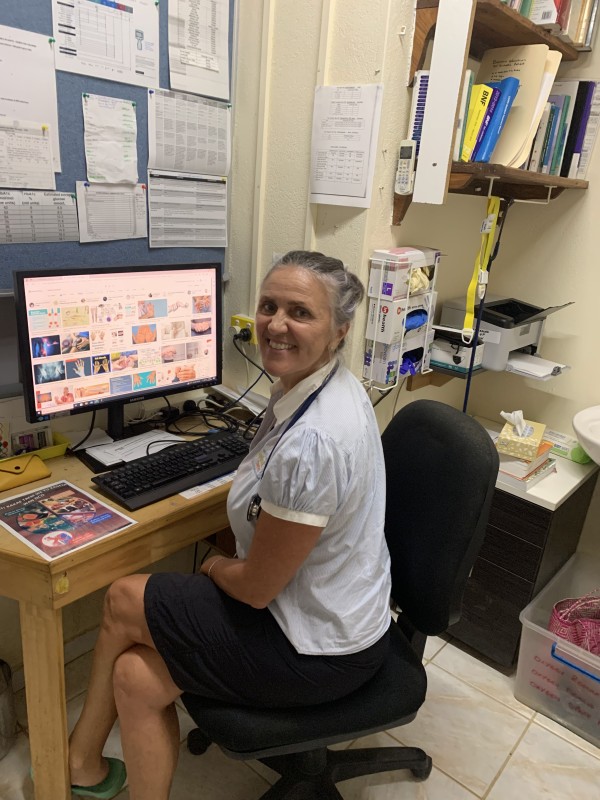
How did you start your volunteering journey with VSA?
My VSA journey began back in April 2021, amid COVID lockdowns in New Zealand, when my husband came home from work, asking me how two years in Vanuatu sounded. He’s a police officer with 35 years of service, and we had talked about a posting in the Pacific. A two-year deployment was advertised, and it was accompanied, which meant that I could tag along too. So how did two years on a warm tropical island sound? Pretty inviting! But what could I do during these two years to keep occupied and hopefully add value? Google volunteering, and there it is - VSA. I’m a registered nurse, with over 30 years of experience. During 2020 and 2021, I worked frontline, in the community, practising nursing and as a Covid vaccinator. Fast forward to February 2022, and we are on our way, to the biggest of 83 islands in Vanuatu, Espiritu Santo (commonly called Santo) to begin my assignment with VSA.
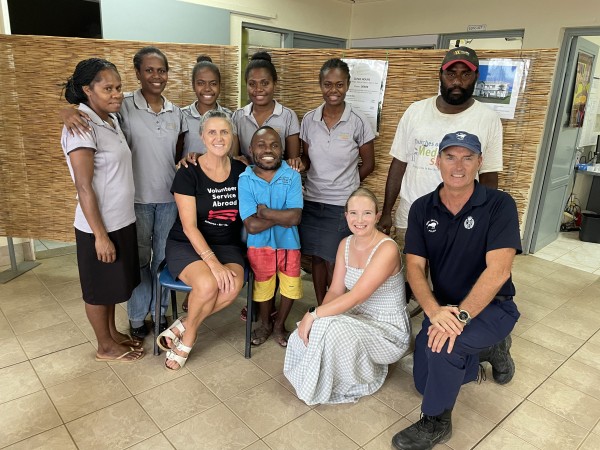
Tell us more about your assignment in Vanuatu.
My assignment was to work as a Nurse Practitioner Trainer at Churches of Christ Medical Santo, a not-for-profit clinic set up 10 years ago to serve the people of Northern Vanuatu (Santo and the other Northern Islands). It is reliant on volunteer doctors and nurses, with some paid local staff. My assignment started in October 2022, with me working three days a week. The assignment was to work alongside the Doctors, seeing patients and assisting and teaching the local nurse assistants. However, following COVID-19 and in a country that had been in lockdown for 2 years, it took time to get more volunteers to return to Vanuatu. There was often a shortage of doctors, which meant that I and another nurse volunteer, would be running our own clinic lists - assessing, diagnosing, prescribing, and dispensing medications as appropriate (working within the Vanuatu Health Guidelines). It was a huge challenge and one that I was not totally prepared for.
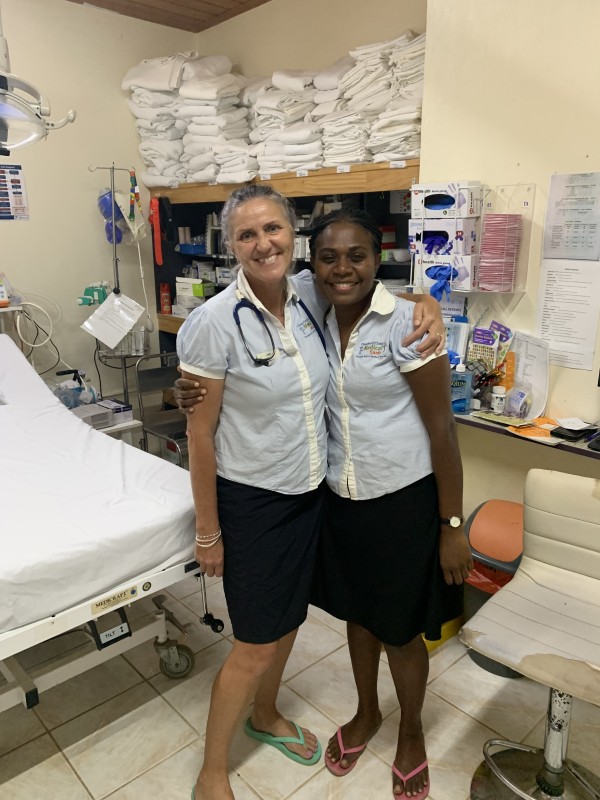
Were there any unexpected challenges you faced in your job role?
In Santo, the only blood testing is done at the local hospital - and is extremely limited. Sending blood to Port Vila (or Australia) is costly and not an option for most patients. X-rays could be ordered by us, to be done at the hospital, but no reports were made. The patient would need to take a photo on their phone of the X-ray picture and bring that to us to read. Medication is unfamiliar to many patients - and a lot of time is required to explain its use and its importance. Some patients would come after having been to a local clinic, or the hospital, and having had treatment, but would be unable to tell us what condition they have, or what medication had been given. No notes or hospital discharge summaries would be available. Unlike nursing in NZ, where services generally share information, and access to testing and investigations are available, these factors, made work challenging. Some days were easier than others. Tricky complicated patients would be referred to the hospital, or if safe to wait, to return when we had a doctor on board. But many, I am happy to say, I was able to help and treat.
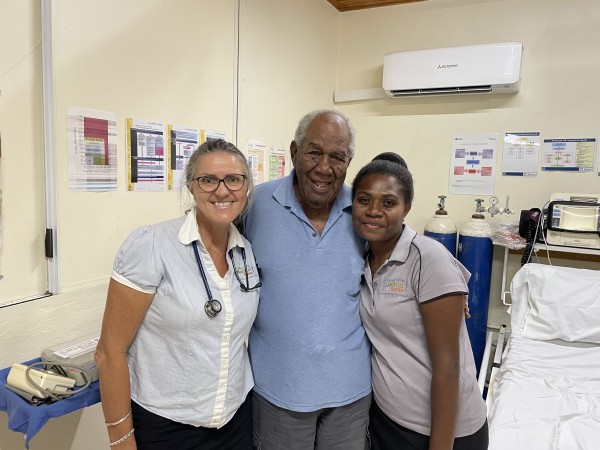
What’s an unexpected element to your job that most people don’t realise?
I was very aware of my limits but also amazed at how much knowledge and skill I was able to bring forth to my role. My teaching to staff was mostly opportunistic, and as interesting cases presented themselves. And as much as I felt I was able to impart and share knowledge, during the year I had at the clinic, working with local staff, I learnt about new conditions, specific to a developing country, and tropical diseases.
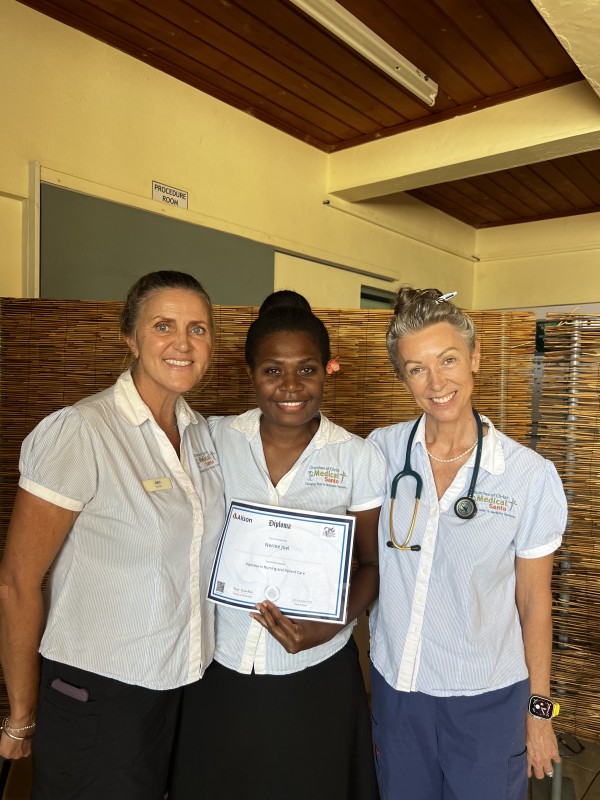
What part of your job gives you the most satisfaction?
I learned a lot about myself during this time. I realised how much knowledge I had accrued over the years. I realised how much I was able to give - not only in a clinical role but energy-wise. It was noted that I was always welcoming and friendly to everyone, making each person feel special. I guess I have always operated in this manner, but it was lovely to be acknowledged for it, in a place where locals are sometimes anxious and hesitant about seeing a healthcare professional from another culture. I realised how adaptable I was - dealing with a revolving door of medical doctors (most working 3-4 weeks at a time). I was consulting mostly in Bislama - the local language- and this at times could be challenging, but also extremely funny! Although some days were tricky, we always got through. We celebrated the arrivals and departures of other volunteers, with cakes and lunches. We supported each other, during the tough times when we were short-staffed. We worked as a team, helping each other out.
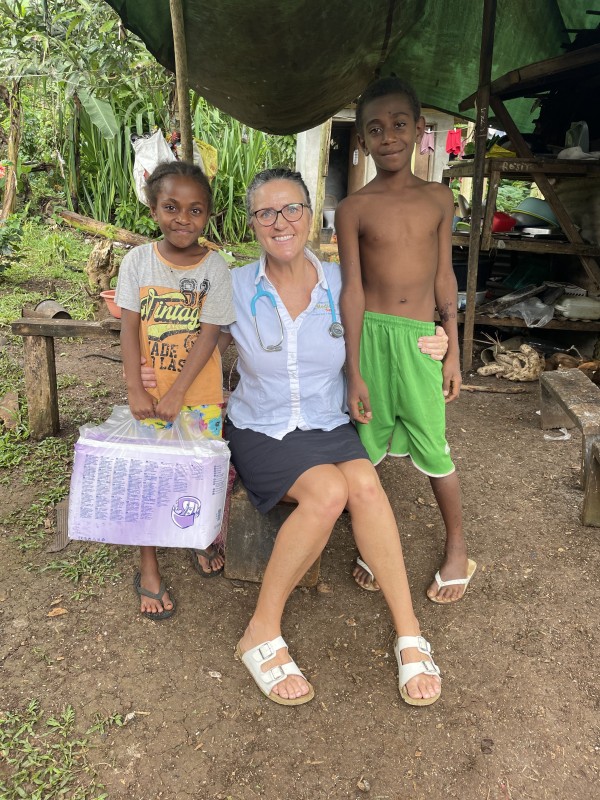
What have you enjoyed about your time in-country?
I kept a great work–life balance, spending days off with friends I made in Santo. I started a book club with a group of women, learnt to scuba dive, and completed over 40 dives, going on to qualify as an advanced open water diver. Weekends were spent with my husband, enjoying all the beauty that Santo has to offer – blue holes, Champagne Beach, Million Dollar Point and of course, diving. We were fortunate to have family and friends come to visit during our two-year deployment, and it was fun to show them our “Vanuatu” life.
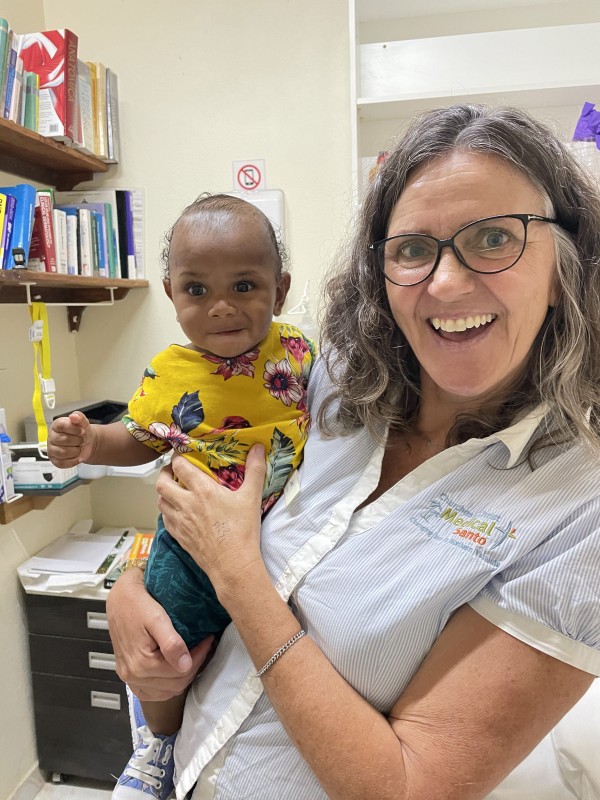
Wins you’ve had while being on assignment.
I reflected a lot on my role in the early days and felt somewhat frustrated at times that I would not be able to fulfil my objectives due to the lack of staff and time for formal teaching. But as time went by, I was able to realise that my capacity building lay with not only the staff, and those opportunistic moments, but the patients. Much of my time during these consults, was spent explaining and educating. And being able to do this in their language, was hugely beneficial. I was so proud of the work that I did in my time, the skills I had used (and gained), the patients that I helped, and the relationships that I forged. I was glad that I had chosen this life of being a VSA volunteer - giving and generous of my time. I finished my contract on a high, satisfied, and confident that I had in fact made a difference.
